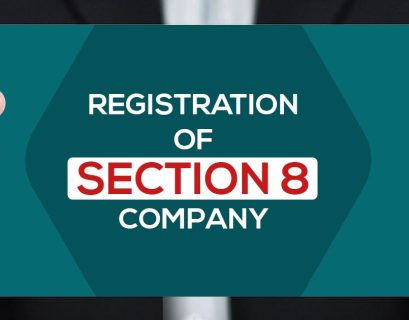The 12A certificate is a crucial document for non-profit organizations in India, granting them tax exemptions under the Income Tax Act, 1961. For donors and stakeholders, verifying the authenticity of a 12A certificate is essential to ensure transparency and compliance. In this article, we will guide you through the step-by-step process of verifying a 12A certificate while emphasizing the significance of 12A and 80G Registration.
Understanding 12A and 80G Registration
Before delving into the verification process, it’s essential to understand what 12A and 80G Registration mean. Both registrations are pivotal for non-profits:
- 12A Registration: This certificate allows an NGO or trust to be exempted from paying income tax on its surplus income. It ensures that funds received are utilized for charitable purposes without being taxed.
- 80G Registration: This enables donors to claim tax deductions for their contributions to the organization. It enhances donor trust and encourages more significant contributions.
Having both 12A and 80G Registration significantly boosts the credibility of a non-profit organization.
Why Verify a 12A Certificate?
Verification of a 12A certificate is crucial for multiple reasons:
- Authenticity: Ensures the organization is genuinely registered and eligible for tax exemptions.
- Compliance: Confirms that the organization adheres to the guidelines stipulated under the Income Tax Act.
- Transparency: Provides assurance to donors and stakeholders about the organization’s legal standing.
- Tax Benefits: For donors, verification ensures their contributions are eligible for tax deductions under 80G.
Steps to Verify a 12A Certificate
Follow these steps to verify the authenticity of a 12A certificate:
-
Request the Certificate
- Begin by asking the non-profit organization to provide a copy of their 12A certificate. Ensure that the document is legible and contains the essential details such as the organization’s name, registration number, and date of issue.
-
Check the Validity of 12A and 80G Registration
- Confirm that the 12A certificate is up-to-date and has not expired. While 12A registration is usually permanent, it’s wise to cross-check for any amendments or cancellations.
-
Verify Details with the Income Tax Department
- Visit the official Income Tax Department’s website and navigate to the section for verifying registrations of non-profit organizations.
- Use the PAN (Permanent Account Number) or the registration number mentioned on the certificate to verify its authenticity.
-
Cross-Check with the NGO Darpan Portal
- The NGO Darpan portal, maintained by NITI Aayog, lists registered non-profits in India. Use this platform to confirm the organization’s credentials and verify its 12A and 80G Registration.
-
Contact the Jurisdictional Assessing Officer
- For an additional layer of verification, contact the jurisdictional assessing officer of the Income Tax Department. They can confirm whether the organization holds a valid 12A certificate.
-
Scrutinize the Certificate’s Details
- Examine the certificate for accuracy. Key details to verify include:
- Name of the organization
- Registration number
- Date of issue and validity period
- Signatures and seals from the Income Tax Department
- Examine the certificate for accuracy. Key details to verify include:
-
Check the Organization’s Financial Records
- An authentic non-profit with valid 12A and 80G Registration should maintain transparent financial records. Request their audited financial statements to ensure they comply with tax exemption rules.
Common Issues to Watch Out For
While verifying a 12A certificate, be mindful of these potential red flags:
- Expired Registration: Ensure the certificate is still valid. Though 12A registration is generally perpetual, changes in laws or organizational status can impact its validity.
- Mismatch of Details: Check for inconsistencies between the certificate details and the organization’s official documents.
- Fake Certificates: Be cautious of counterfeit documents. Always verify directly with official government portals.
Importance of 12A and 80G Registration for Donors
For donors, the benefits of contributing to organizations with 12A and 80G Registration are immense. Apart from tax deductions, it assures them that their donations are being used for legitimate charitable activities. Thus, verifying the registration status before making contributions is highly recommended.
Benefits of Verifying a 12A Certificate
- Assured Compliance: Verifying ensures the organization complies with the legal framework of the Income Tax Act.
- Enhanced Trust: Donors and stakeholders gain confidence in the organization’s credibility.
- Tax Efficiency: Donors can claim tax deductions seamlessly under 80G registration.
- Transparency: Verification fosters a culture of openness, encouraging more significant contributions.
Read: Garage Door Repair
Frequently Asked Questions
1. Can a 12A certificate expire?
- Generally, 12A registration is permanent. However, if the organization fails to comply with regulatory requirements, the registration may be revoked.
2. How does 12A and 80G Registration benefit donors?
- 12A registration ensures tax exemptions for the organization, while 80G registration enables donors to claim tax deductions.
3. What documents are needed for 12A verification?
- A copy of the 12A certificate, PAN details, and audited financial statements are typically required.
4. Is it necessary to verify both 12A and 80G Registration?
- Yes, as both registrations complement each other. While 12A benefits the organization, 80G primarily benefits donors.
Read: Laptop Screen Repair
Conclusion
Verifying a 12A certificate is a straightforward process that ensures compliance and transparency. By leveraging official portals and meticulously cross-checking details, you can confidently verify the authenticity of an organization’s 12A and 80G Registration. This not only safeguards the interests of donors and stakeholders but also upholds the integrity of charitable contributions.









